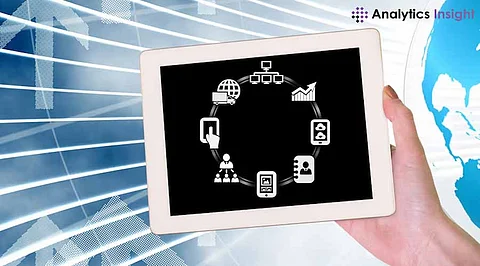

The Internet of Things (IoT) is transforming industries and lifestyles globally. IoT is driving efficiency and innovation across various sectors by connecting devices, collecting data, and enabling smarter decisions. In 2025, IoT solutions are expected to create significant changes in areas like healthcare, transportation, and energy. Here’s a look at the most impactful IoT applications and emerging IoT technologies that promise to shape the future.
The healthcare sector has embraced IoT solutions to improve patient care and health outcomes. Remote Patient Monitoring (RPM) is one of the fastest-growing IoT applications in healthcare.
Wearable devices collect real-time health data, such as heart rate, oxygen levels, and blood pressure. Modern IoT technologies such as AI and advanced analytics analyze health data to provide predictions about medical problems which allow prevention at an early stage. The healthcare industry relies on Internet of Things applications to provide improved and accessible treatment options to chronic disease patients.
Industrial automation exists on the verge of a fundamental shift because of IoT solutions. Real-time equipment monitoring and production process surveillance are enabled through factory implementations of IoT-connected devices.
Predictive maintenance is one of the most impactful Internet of Things cases in manufacturing. IoT sensors identify potential equipment failures before they occur, helping industries minimize downtime and maintenance costs. By combining IoT with emerging IoT technologies like machine learning, companies are optimizing operations and enhancing productivity.
Precision farming is one of the key Internet of Things applications that are revolutionizing agriculture. Through soil sensors, weather, and crop health monitors, IoT systems deliver practical insight to farmers.
Through IoT solutions, farmers gain smart data that helps them decide about their irrigation systems, fertilization rates, and pest management protocols. The approach leads to improved output while supporting eco-friendly agricultural techniques. The implementation of autonomous farming equipment and IoT-based irrigation systems expands agricultural efficiency and resource management achievements.
By integrating smart home technology, IoT becomes a significant use case that combines home automation capabilities with energy-saving functions. The power of IoT lies in allowing people to operate their household systems, including lighting security and heating functions, through mobile apps and voice commands.
Smart appliances powered by IoT systems use collected user behavior statistics to minimize energy usage. The combination of IoT-powered thermostats with smart refrigerators allows whole-system optimization through inventory monitoring and intelligent shopping recommendations. Internet-connected products improve our lives by reducing costs and supporting environmental preservation.
IoT technologies create a major revolution in supply chain operations through enhanced visibility together with operational effectiveness. Tracking items in real-time contends among crucial IoT applications used in logistics operations.
The data from connected devices shows delivery schedules and shipment conditions in combination with inventory management statistics. Businesses gain the ability to minimize costs while optimizing logistic operations and improving customer satisfaction. These Internet of Things applications maintain their relevance in contemporary global trade because they enable uninterrupted production-to-delivery operations.
New vehicles built with autonomous capabilities heavily depend on the Internet of Things for communication and navigation functions. Connected devices and IoT sensors help vehicles establish communication links with road infrastructure and traffic lights, as well as other vehicles, during operations.
Real-time data exchange through the Internet of Things is a fundamental use case that accelerates security performance in this field. Traffic management systems experience better performance through IoT applications, decreasing congestion and lowering emissions. Autonomous vehicles benefit from recent breakthroughs in 5G technology and edge computing, speeding up their market integration.
Energy management breakthroughs in the modern era stem from IoT solutions that work through smart grids. Smart energy systems use IoT devices to track energy use levels for enhanced management outcomes.
Energy management with IoT practices offers solutions that detect power failure risks and achieve uniform power network distribution while integrating clean energy systems. Improved energy efficiency together with reduced costs produces a better future by benefiting consumers and providers through Internet of Things use cases.
Internet of Things technology applications during 2025 will transform industrial operations alongside everyday human activities. IoT solutions deploy new-age technologies to transform healthcare facilities and agriculture operations alongside smart cities and autonomous transportation systems, leading to sustainable development. The next phase of IoT implementation will be driven by advancing technologies, including Artificial Intelligence, edge computing, and 5G capabilities.
The advancing nature of IoT will produce an amplified impact that builds a world with increased connectivity while maximizing efficiency and sustainability. Modern innovation gets its core from IoT technology, which enables both traffic flow improvement in urban structures and patient care improvement through remote monitoring operations.
